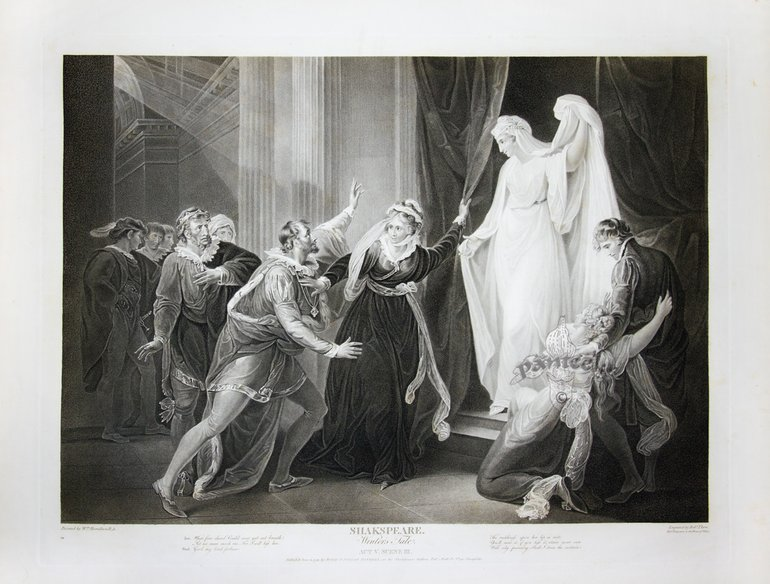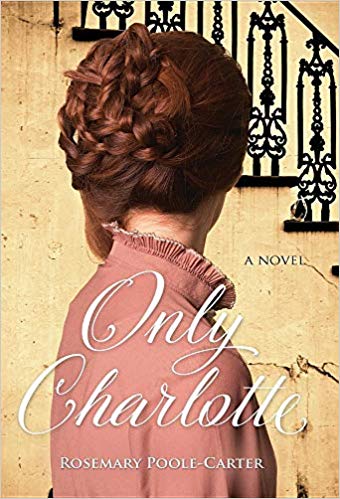 For those of us who write, our characters are as real to us as the people next door so it’s perfectly natural for us to have a conversation with them now and then. So today I welcome Rosemary Poole-Carter and her central character, Lenore, as they chat a bit about Rosemary’s book Only Charlotte and Lenore’s role in the story.
For those of us who write, our characters are as real to us as the people next door so it’s perfectly natural for us to have a conversation with them now and then. So today I welcome Rosemary Poole-Carter and her central character, Lenore, as they chat a bit about Rosemary’s book Only Charlotte and Lenore’s role in the story.
I reviewed the book last Sunday, so you can hop over there after reading reading the interview.
RPC: Here we are in New Orleans, circa 1882, in the parlor of Mrs. James—
LJ: Oh, do call me Lenore. A woman who’s had as many last names as I—well, my first suits me best.
RPC: I think of Lenore in Poe’s The Raven.
LJ: As well you might.
RPC: Lenore, I understand that you have outlived three husbands. Any plans to marry again?
LJ: Never say nevermore. After all, I’m just shy of forty, as you may have guessed. But as a widow of means, I enjoy the latitude to pursue other interests.
RPC: Such as?
LJ: First, my charitable work for a women’s shelter. So many women and children in need. Then, my support of the arts—visual, musical, literary, and especially theatrical.
RPC: Busy as you are, you still found time to help your younger brother Gilbert during his recent difficulties. Would you describe the nature of your concern for him?
LJ: Oh, bless his heart. After his troubles in Baltimore, I invited Gilbert to live with me in New Orleans, open a small medical practice, and make a fresh start. Well, he hadn’t been here six months when he fixed his affections on a married woman—the captivating Charlotte. Off he went on the road to disaster.
RPC: So you disapproved of his attachment to Charlotte?
LJ: Disapprove—fiddlesticks. Haven’t we all, one time or another, done something we would rather not see published in the newspapers? I was moved by sisterly concern.
RPC: After Gilbert’s situation became more complicated—
LJ: Dangerous—murderous!—that’s what it was. Charlotte’s husband got tangled up with powerful Judge Placide—he, with a finger in every pie.
RPC: You risked a great deal by helping your brother. Any regrets?
LJ: For helping Gilbert? None whatsoever. But I truly worried about what my involvement might mean for Ella, who is more friend than housekeeper to me. Gil and I relied so heavily on her discretion.
RPC: Earlier you mentioned your interest in theater. Wasn’t it around the time of Gilbert’s troubles that you met actor/manager Ambrose Parr? Are you and Mr. Parr still seeing each other?
LJ: Yes, we collaborate now and again. And you’re right about the timing. As Gilbert came to crisis, I sat in the theater with Ambrose, enthralled by Shakespeare’s The Winter’s Tale.

RPC: Lenore, I can’t help but notice that you and the play’s character of Paulina share some commonalities. Would you care to comment on her influence on your actions?
LJ: With pleasure. How could I not be inspired—indeed, galvanized—by Paulina? She is just like women today—constrained by men in power, denied the right to vote, and so forth. But she, like myself, refuses to be intimidated. Paulina resolves to use her wits to outwit that King of Sicilia, who’s mad with jealousy and causes all sorts of harm to innocent folks.
RPC: You were not actually present in some scenes included in your narrative. How did you manage to describe them in such detail?
LJ: I took an active role in a number of key scenes, and when not present, I took poetic license. Of course, I was already familiar with many of the people and places involved in scenes I didn’t witness. Gilbert, willingly or with a little coaxing, revealed all sorts of details to me, and Ella filled in some gaps. Judge Placide’s wife Helene claims psychic powers, holding her seances, but I read people in the flesh. A gesture, a glance, a tone of voice—they all tell a story.
RPC: Your future plans?
LJ: Play-writing!

BOOK BLURB: Lenore James, a woman of independent means who has outlived three husbands, is determined to disentangle her brother Gilbert from the beguiling Charlotte Eden. Chafing against misogyny and racism in the post-Civil War South, Lenore learns that Charlotte’s husband is enmeshed in the re-enslavement schemes of a powerful judge, and she worries that Gilbert’s adoration of Charlotte will lead him into disaster.
ABOUT THE AUTHOR:
Rosemary Poole-Carter explores aspects of an uneasy past in her novels Only Charlotte, Women of Magdalene, What Remains, and Juliette Ascending, all set in the post-Civil War South. Her plays include The Familiar, a ghost story, and The Little Death, a Southern gothic drama. Fascinated by history, mystery, and the performing and visual arts, she is a member of the Historical Novel Society, Mystery Writers of America, and the Dramatists Guild of America. A graduate of the University of Texas at Austin, she was a long-time resident of Houston, where she practiced her devotion to reading and writing with students of the Lone Star College System. She now lives and writes by the Eno River in Durham, North Carolina.
You can find out more about her on her WEBSITE and visit with her on FACEBOOK

Maryann, thank you so much for the opportunity you gave me to catch up with Lenore. I’d missed her!
I’m glad you wanted to share the chat with Lenore, Rosemary. She is a wonderful character, and I do wonder how much of you is in her. Care to reveal?